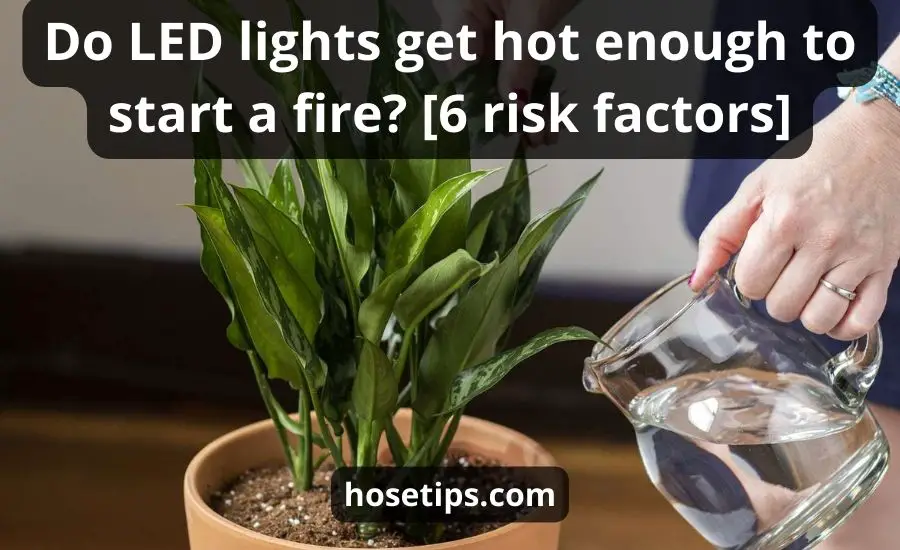Will softened water kill plants? Whether you grow indoor plants or outdoor ones, watering tips are always crucial. Since the water balance for humans and plants is different, can you be sure that your drinkable water is as good for your garden as for you? Will your soft water be good for plants or is this a sure way to kill plants?
I’m going to share several smart hacks on how to water plants properly and avoid many extra issues.
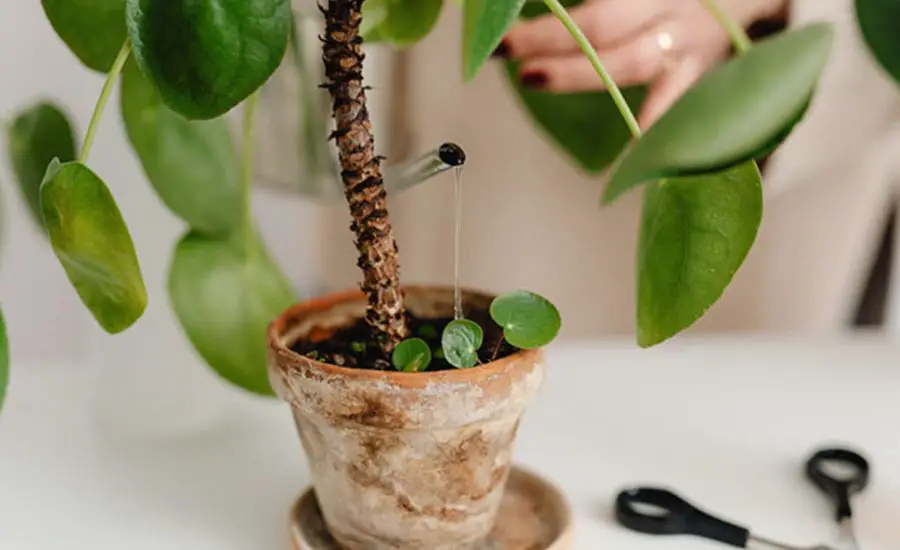
Is soft water good for plants?
For those who have softened water at home, a whole list of benefits is available, including the energy bills economy and prolonging the lifespan of your plumbing system. However, what about watering plants? Is soft water good for any plant species you have at home?
Let’s take a closer look at the softened water and all the possible risks it can bear for your plants.
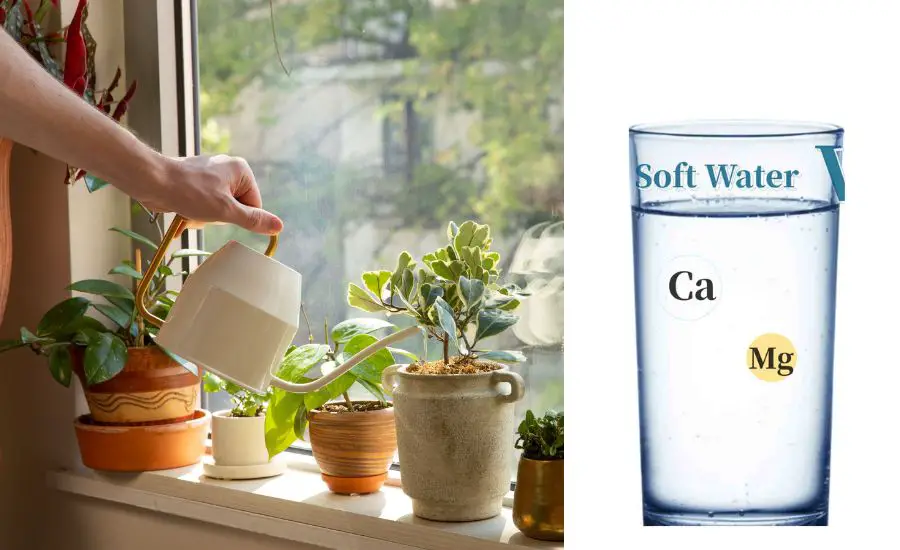
What is softened water?
In many regions, hard water becomes a real issue that needs some extra steps to deal with it. Hard water minerals accumulate on the surfaces, making you use more cleaning agents and waste more water for the washing sessions. That is why many people opt for water-softening systems to purify household water from excessive minerals.
Hard water can be softened by the treatment process that purifies it from heavy minerals such as calcium and magnesium carbonate salts. In excess amounts, they become a nasty issue that ends up with stubborn mineral buildup in your household.
Thus, many people opt for water filtering systems that work as water softeners.
The water softening system uses such additions as sodium chloride or potassium chloride to get rid of heavy minerals. As a result of the process called “ion exchange”, the soft water is free of many undesired components that can be harmful to your household.
However, is the softened water really good for your plants?
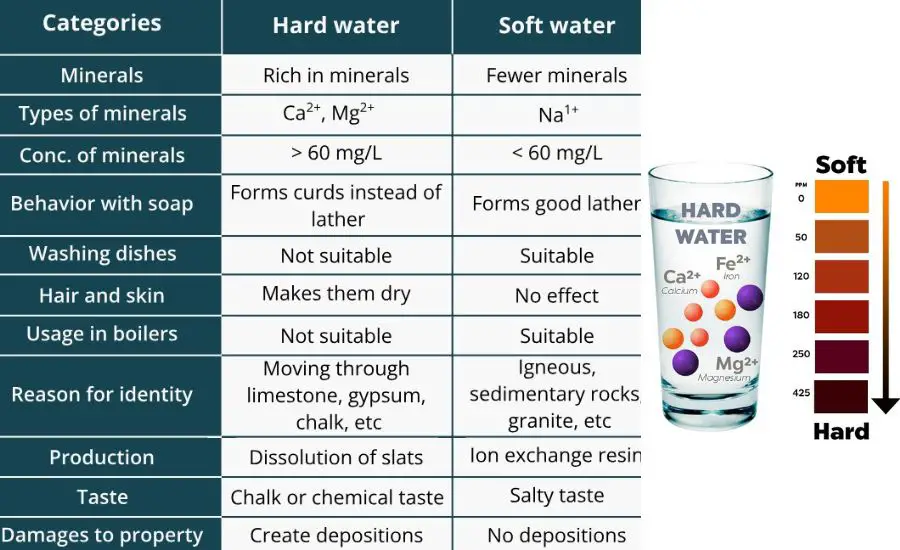
Why softened water is bad for your plants?
While being harmful in excess, mineral salts are still crucial for plants in adequate amounts. Thus, soft water is a short way to the lack of minerals in your indoor plants.
Besides, sodium chloride that is contained in softened water is a sure way to make your plants thirsty. Since the water balance is destroyed by sodium content, the plants suffer from a lack of water while they have a false effect of having more water than they really drink. In other words, sodium content “fools” your plants by making them falsely hydrated.
As a result, you can see your plants wilt and dry quickly. Besides, salt water leads to build-ups in the soil that add more issues to your plant growth. The salt buildup on the soil surface makes a hindrance for new plants to grow.
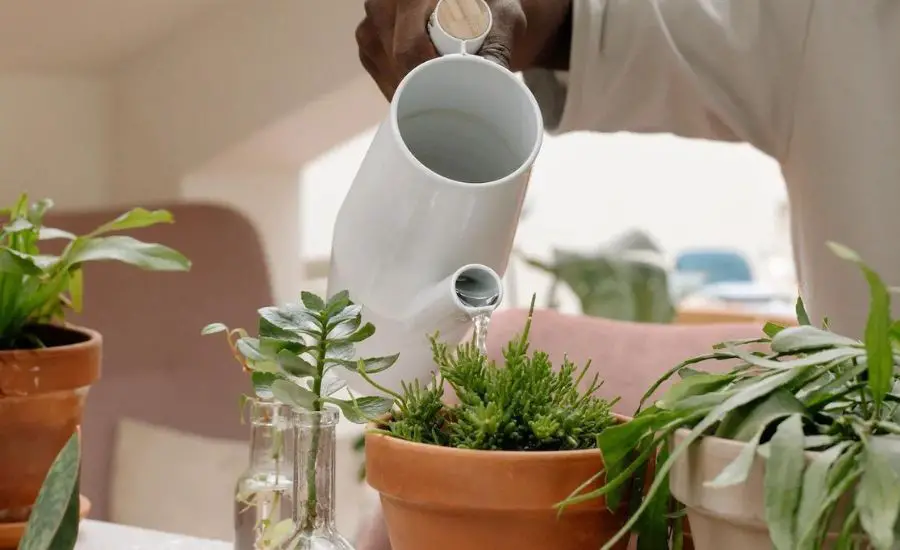
How to water your plants with softened water
Even if you prefer using soft water in your household, you still have a list of alternative options to try such as using a reverse osmosis system, collecting rainwater, or some other variants.
Here are a few surely working hacks from my plant care experience.
#1. Collect rainwater
Are you looking for a simple and eco-friendly solution? Then, collecting rain water is a good option to try if you need to water your outdoor plants.
Install a rain barrel or even a few ones in your backyard to collect rainwater on rainy days. After several rains, your water reservoir will be ready for use. Moreover, if your municipalities provide you with rain barrels, don’t hesitate to grab one.
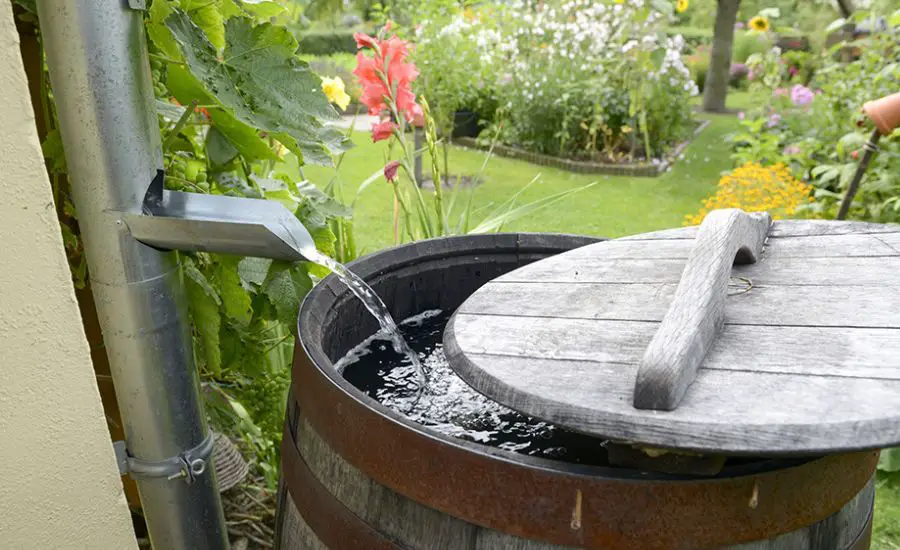
#2. Dilute your softened water
One more option is to use diluted soft water for your plants. Adding some untreated water to the soft one is a good idea. Thus, you can both reduce the salt concentration and provide your plants with the minerals they need in adequate amounts.
Keep in mind that some types of untreated water can be harmful to your plants.
Learn more about the optimal types of water that you can use for watering plants without any serious risks.
As well as watering your plants with pure rainwater, you can also mix it with the softened water. Hence, you can lessen the salt content in the soft water and make it better for your plants. However, be careful to use less soft water than rainwater, as the excess salts will accumulate in the soil.
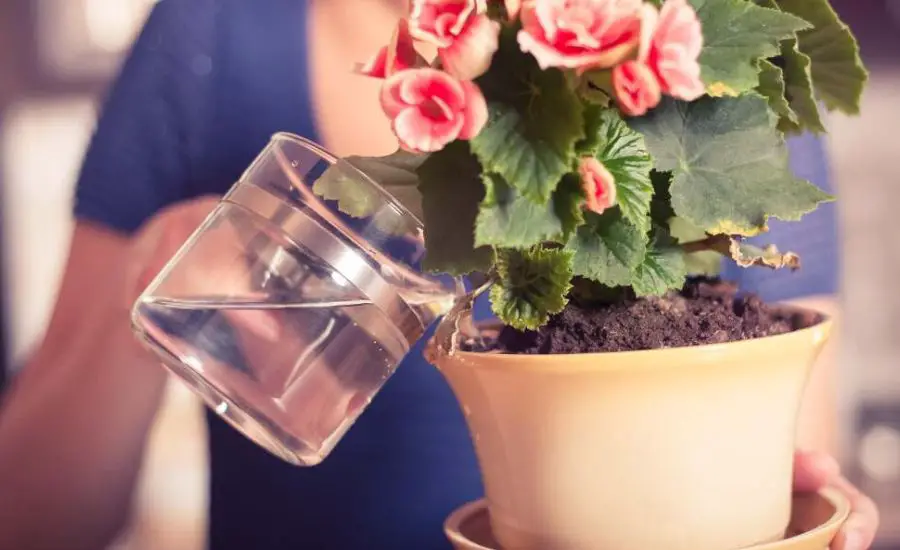
#3. Opt for the Reverse Osmosis water
Reverse Osmosis water (RO water) is the perfect option for watering house plants. As well as most serious plant owners and gardeners, I always opt for this type of water and recommend this option as the best one to use.
Since the RO system removes water softeners from the water, you can use it without any harm to the plants. This is especially true for the delicate plant life that needs special care tips.
If you don’t have the RO system at home, you can buy Reverse Osmosis water for your plants. The RO water is usually quite cheap and easily available.
I recommend buying Reverse Osmosis water as it is more convenient than getting a costly RO system. You can purify either tap or bottled water to make it good for watering plants.
Such water provides proper nutrient flow to the plants and doesn’t bring any excess contaminants they don’t need.
A good rule of thumb is to use Reverse Osmosis water with a bit of fertilizer to make it more beneficial for your house plants.
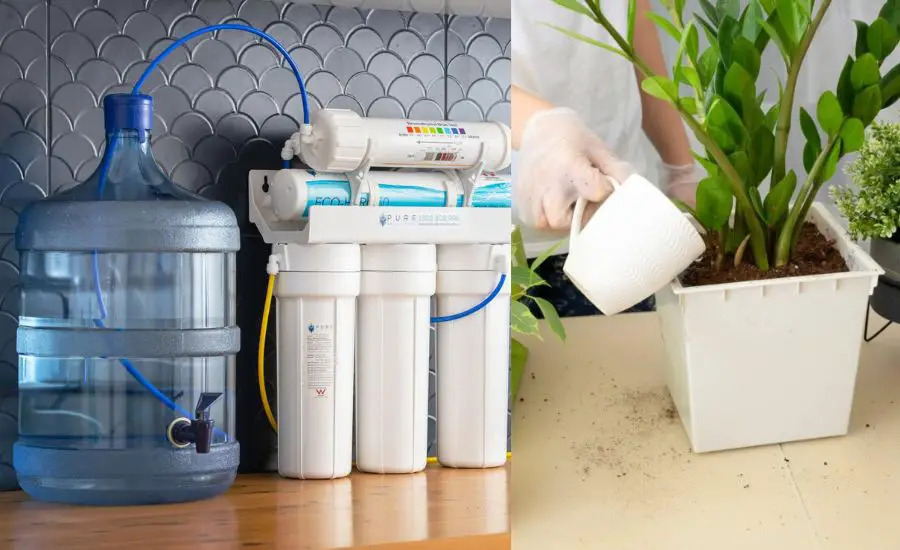
#4. Get the distilled water
One more option is to use distilled water which is also good for watering sessions. Since it is purified from the excess salts, there is nothing to harm the plant roots or accumulate in the soil.
Sometimes I get some distilled water in the local store to use for indoor watering: for smaller watering areas, it is a convenient option to use.
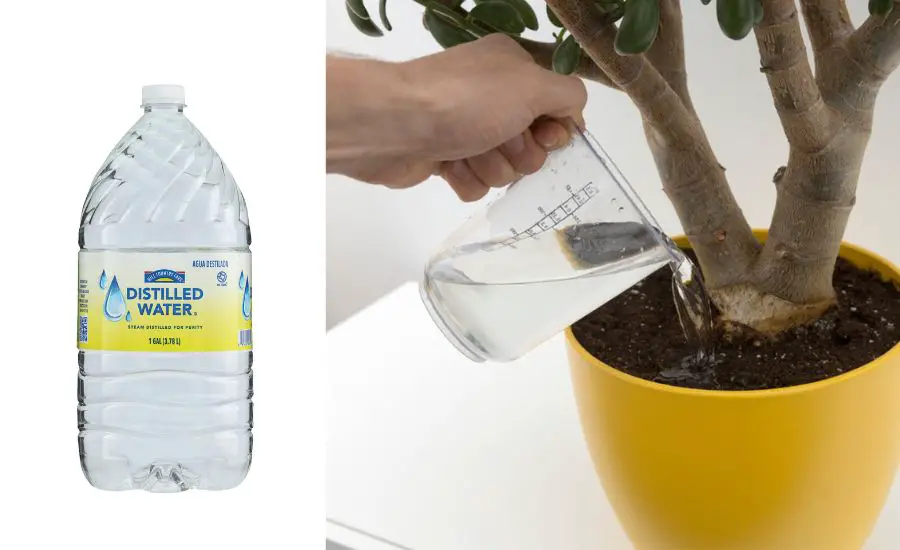
#5. Make use of a bypass valve
Using the bypass valve is a good idea, especially for those who need to keep soft water at home and water their outdoor gardens from the untreated water line.
Just install it on the existing tap to provide temporary access to the tap water for your garden. Thus, you can still soften water for yourselves and have a separate unsoftened water line for your lawn.
For my outdoor plants, I use this personalized water line while using soft water in my household. This is a really convenient option to use when you need it.
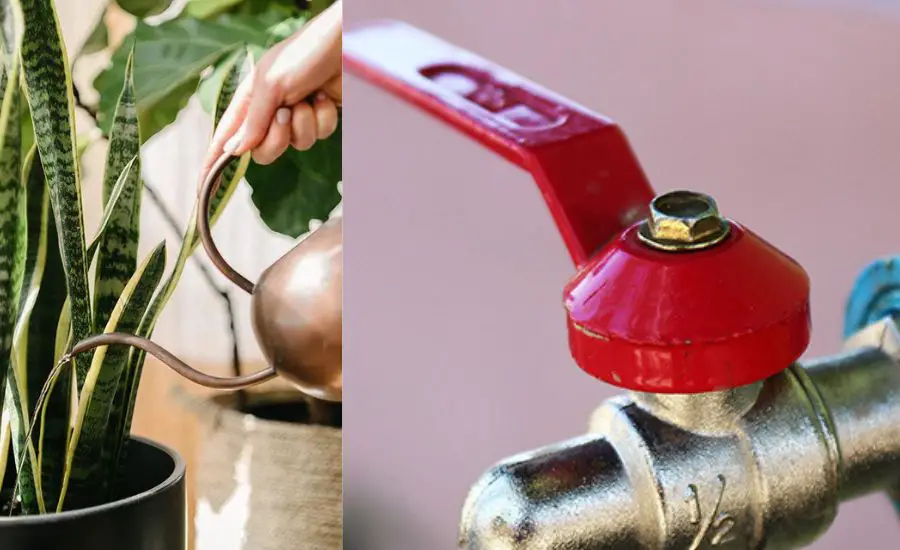
#6. Opt for another water softener
To change the impact on your plants, you can switch to another type of water softening system that has less impact on the water content.
For example, if you use water softened with the help of potassium pellets, this can be quite a good variant for plants since potassium chloride is a more beneficial nutrient for plants.
One more possible variant is to get a salt-free water softener instead of a regular one. However, keep in mind that such a water softener can be less efficient in removing minerals from hard water. But when we talk about watering plants, these types of water conditioners work quite well.
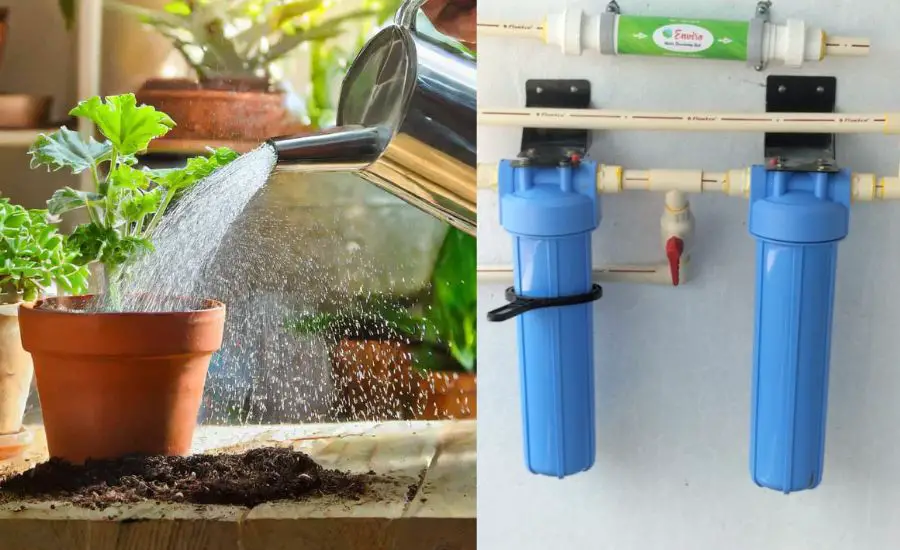
#7. Use regular tap water
Last but not least, you can simply water your lawn or indoor plants with regular tap water. Since it is not softened, there are still more minerals and less salts.
A key point is to let the tap water stay for a while so the excess contaminants will sit. Then, you can water plants with it.
However, keep in mind that tap water is not always good for this purpose.
For example, some plant species are not compatible with chlorinated tap water, so you need to keep it standing for a few days until the excess chlorine evaporates.
To know better, always consult with the watering instructions for the exact species you have.
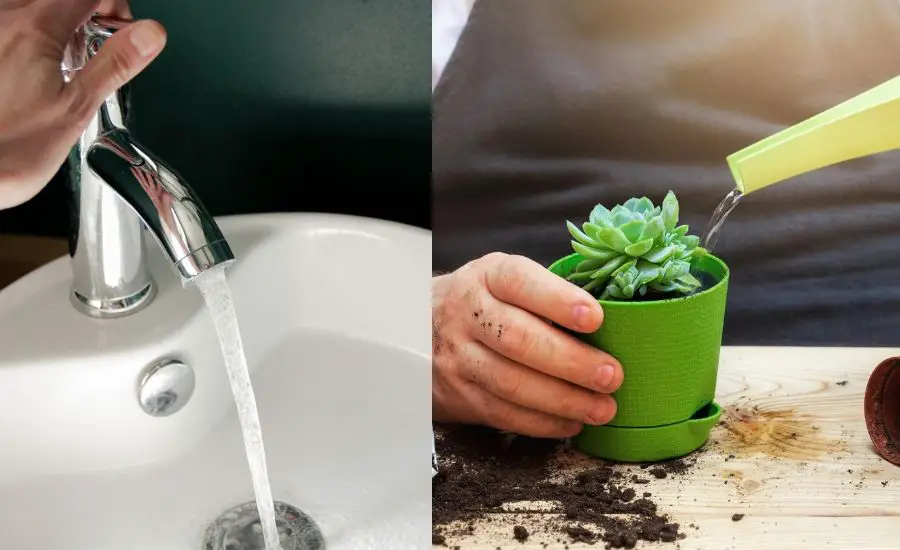
FAQ
Is it OK to water plants with softened water?
Since softened water is full of extra salt, it is not a good idea to water your plants with it. The high content of salts and lack of minerals is not what they really need. The excess salt makes your plants thirst and causes stunted growth in both existing and future plants.
Will softened water kill grass?
The softened water is not recommended to use for watering your grass, as its content is not beneficial for plant growth.
Calcium and magnesium in high amounts can be harmful to your garden soil. Salt accumulation in the soil leads to the stunted growth of the existing plants and prevents future plants from growing.
It is always better to water plants with unsoftened water or dilute the soft water with unsoftened or rainwater.
How do you fix soft water for plants?
A perfect way to fix softened water for plants is to use Reverse Osmosis water. It works perfectly for watering most plants, especially indoor ones. For better effect, you can add some fertilizer into the Reverse Osmosis water to provide more nutrients to the soil.
Will water softener salt kill trees?
Yes, it will. Soft water exposure can affect the trees’ root system because of the sodium buildup in the soil. What is more, an affected root branch can lead to issues with other roots and finally affect the root system. Since the roots don’t function properly, a tree will finally die.
There is nothing risky with an occasional watering session, but you can’t water your trees constantly with soft water.
Final thoughts
As you can see, you can still use soft water at home and provide safe watering for your plants. Please share some more of your working hacks in the comments!

